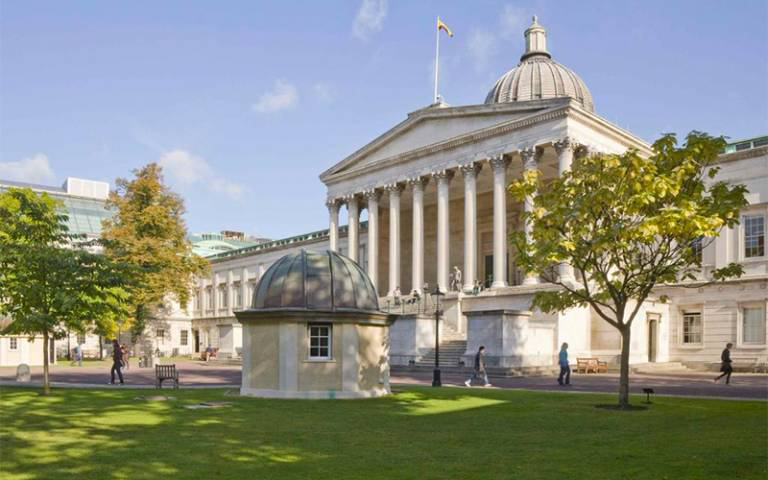UCL to lead £3.9m national collaboration to drive academic policy engagement
2 July 2020
UCL has been awarded almost £4m by Research England to explore ways of improving academic-policy engagement, in partnership with the universities of Cambridge, Manchester, Nottingham and Northumbria, as well as Parliament, Government and policy organisations.

As the Covid-19 pandemic has demonstrated, the need for reliable evidence which can inform public debate and policy has never been greater. With increasing pressure on public finances, it is also vital that local and central governments can be confident that their policy interventions will be effective and successful – and academic expertise has a crucial role to play in that process.
The 3-year Capabilities in Academic-Policy Engagement (CAPE) project aims to foster and support academic engagement with policy professionals, and enable greater understanding and cooperation between universities, national government, parliament and regional and local authorities.
CAPE will be delivered with input and support from the Parliamentary Office for Science & Technology, the Government Office for Science, the Alliance for Useful Evidence, and the Transforming Evidence hub.
In addition to the £3.9m funding from Research England, partner institutions will be contributing further resource, bringing the total value of the project to nearly £10m. The project will support academic-policy engagement at scale and, crucially, the project will engage universities and policy stakeholders from across England. This will ensure a greater balance in the interests and expertise represented and ensure the project is addressing issues of policy beyond Westminster, to reflect the diversity of England’s communities.
The project will pilot a range of interventions to improve the quality of academic input into public policy, enabling universities to respond to emerging and pressing questions in an agile, targeted way. By working in partnership, it is hoped that both researchers and policy professionals will be able to connect experts in their field more quickly, and co-develop effective interventions based on reliable evidence.
The project will develop a range of evidence-based tools and resources to support academic-policy engagement and establish a virtual Centre for Universities and Public Policy to provide a collaborative platform for networking and sharing knowledge.
Professor David Price, UCL Vice-Provost (Research) and Principal Investigator, said: “University research can offer a wealth of insight to inform complex policy questions. But neither universities nor policymakers are currently engaging as effectively as we might to ensure the translation of academic expertise into the policy sphere. I am delighted that UCL now has the opportunity, through this partnership, to explore the most effective ways of supporting and enabling academic-policy engagement and strengthening the links between universities and government at all levels.”
Sarah Chaytor, UCL Director of Research Strategy and Policy and project co-lead, added: “By addressing the existing barriers between universities and public policy organisations at a range of levels and working in close partnership across the project and with a wider network, we will be able to build our understanding of ‘what works’ in academic-policy engagement and how universities and policy stakeholders can work together to tackle national and regional policy problems.”
Dr Olivia Stevenson, UCL Head of Public Policy and project co-lead, stated: “The CAPE project takes seriously the need to increase and include diversity of thought, people and places in academic-policy engagement. By doing so CAPE will be able to develop a deeper knowledge base of how the world of academia and public policy can work more effectively together to deliver significant real-world benefits.”
David Sweeney, Executive Chair of Research England, said: “This project will make an important contribution to our emerging understanding of how universities can best support academics and researchers to engage with public policy and respond to the needs of policy stakeholders. We are particularly pleased to be supporting a consortium with widespread regional reach, which will help us to understand different geographical contexts and the important role that universities can play in and across regions as well as nationally.”
Links
Image
- UCL Portico.
 Close
Close

